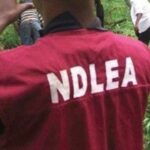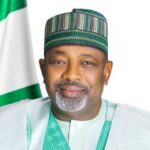Very few areas are working well today in Nigeria. Individual interests are overshadowing the public interest. This is killing economic policymaking in the country. Nigerians should be worried about this. They should be worried that things do not work in our country the way they work in other places.
In many areas of our national life, the discrepancy between our potential and our reality has persisted and indeed widened. This has been aptly captured in the expression: “The more you look, the less you see”. It is a summary of the paradox that has characterised our country. Ours is a country of poverty amid opulence; and hunger amid plenty.
These expressions encapsulate the sad reality of a nation which greatness has remained in the realm of “potential”. However, nobody eats potential, as Dr Akinwumi Adesina, the African Development Bank (AfDB) president, said many years ago while serving as Minister of Agriculture in Nigeria. We are poorer today than we were 20 years ago; our currency is weaker today than it was two decades ago.
The expressions also represent an unfortunate acknowledgement of why things have refused to improve for the average man in Nigeria. Instead, the nation has regressed in virtually all areas of human development. They tell us why, when we budget to spend more on things that improve human life, rather than get better, things turn out the opposite.
- Climate change: Nigeria to reduce emissions through carbon market
- Nwabali returns to training, team medics to decide his fate today
This is the case even in the attempts to model this economy for a better understanding of its dynamics. Ordinarily, modelling an economy for purposes of planning is in itself a difficult task. In Nigeria, this has been made a lot more difficult by the unconventional way our economy works. This is the cost of the leaky nature of our economic system. Those who exploit this aberration claim that the Nigerian economy does not work in tandem with other economies of the world. This is pure falsehood.
Economic models are mathematical arguments or claims about the causal relations among economic variables. Economists build models to understand how economies work, and in so doing can gain insight into what measures to apply in given problems or challenges.
As such, they show us how, under certain conditions or assumptions, changes in each variable affect the other variables and therefore the economy as a whole. Being theoretical abstractions of reality, models are not perfect in their representation of the real world, but for management or policymaking purposes, they give some sense of predictability within given ranges of probability or assumptions. They show, for instance, how a sector could respond to changes in investments and other activities that impact it. So, when the government budgets a billion naira to be spent on infrastructure, it is logical to capture this in an econometric model that shows how this will lead to a certain amount of increase in power generation, good roads, etc.
Unfortunately, this is not the case in Nigeria. Our environment does not permit this kind of thinking, because the pervading philosophy now seems to have elevated the interest of the individual above public interest. This explains the death of public purpose in our national discourse. Annual budgets no longer represent the interest of the public in the true sense of the word. Rather, those charged with the responsibility of supervising such projects first satisfy themselves before they remember the real owners of such projects.
Today, we have virtually become accustomed to the fact that not all the amount that we have budgeted for a purpose will go into it. When an amount is mentioned for a public purpose, there are more people whose interests must be taken care of from that budget. Otherwise, how come despite the billions of dollars that have been budgeted or spent on the power sector we are still dwelling in darkness? Why has Nigeria been unable to resolve the power sector malaise, at least to a reasonable extent?
When we budget so much for the economy, I wonder what fraction of the amounts budgeted is spent on the projects and programmes. Do we recognise or even accept the fact that a significant amount of that leaks into unofficial pockets or bank accounts?
How does our budgeting system or economic frameworks reflect or admit the fact that some significant fractions of budget amounts for specific sectors will be diverted from the purpose? How do our economic analysts reflect the fact that the leaky nature of our economy is a defect in our economic management efforts?
Economists also model markets to show how that intricate web of buyers and sellers respond to changes in incentives or costs in their efforts to get the best from their efforts. But in Nigeria, we bend the market, and in the process distort the picture it presents. The outcomes of market transactions are supposed to be the true picture of the decisions of the participants. We distort it. We help the market!
The above example played out quite significantly in the foreign exchange market. When CBN gave forex to banks for sale to business people, there were stories of how nasty things became in some cases. Yes, officially the business people got the dollars at the official rates, but the unrecorded costs they incurred forced them to mark up the prices of their imported goods. With that, there was no difference between the prices of those who bought forex through the banks and those who sourced theirs from the street market.
This contributed in no small measure to the difficulties experienced in the country’s foreign exchange market. Monetary activities are conducted based on the assumption of a transmission mechanism between the financial sector and the real sector. It is what the financial market sends to the real sector that forms the basis of decisions in the latter.

 Join Daily Trust WhatsApp Community For Quick Access To News and Happenings Around You.
Join Daily Trust WhatsApp Community For Quick Access To News and Happenings Around You.


